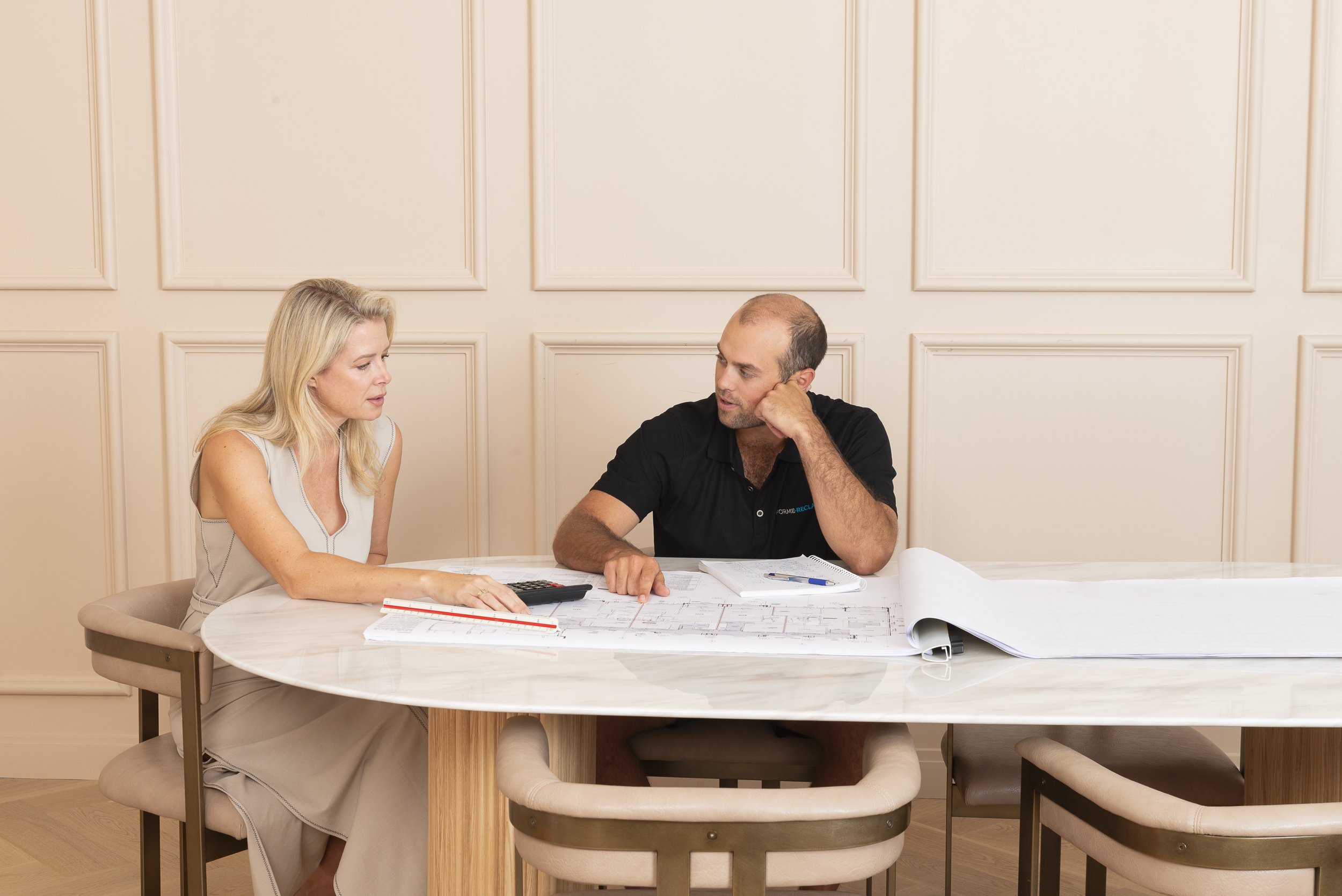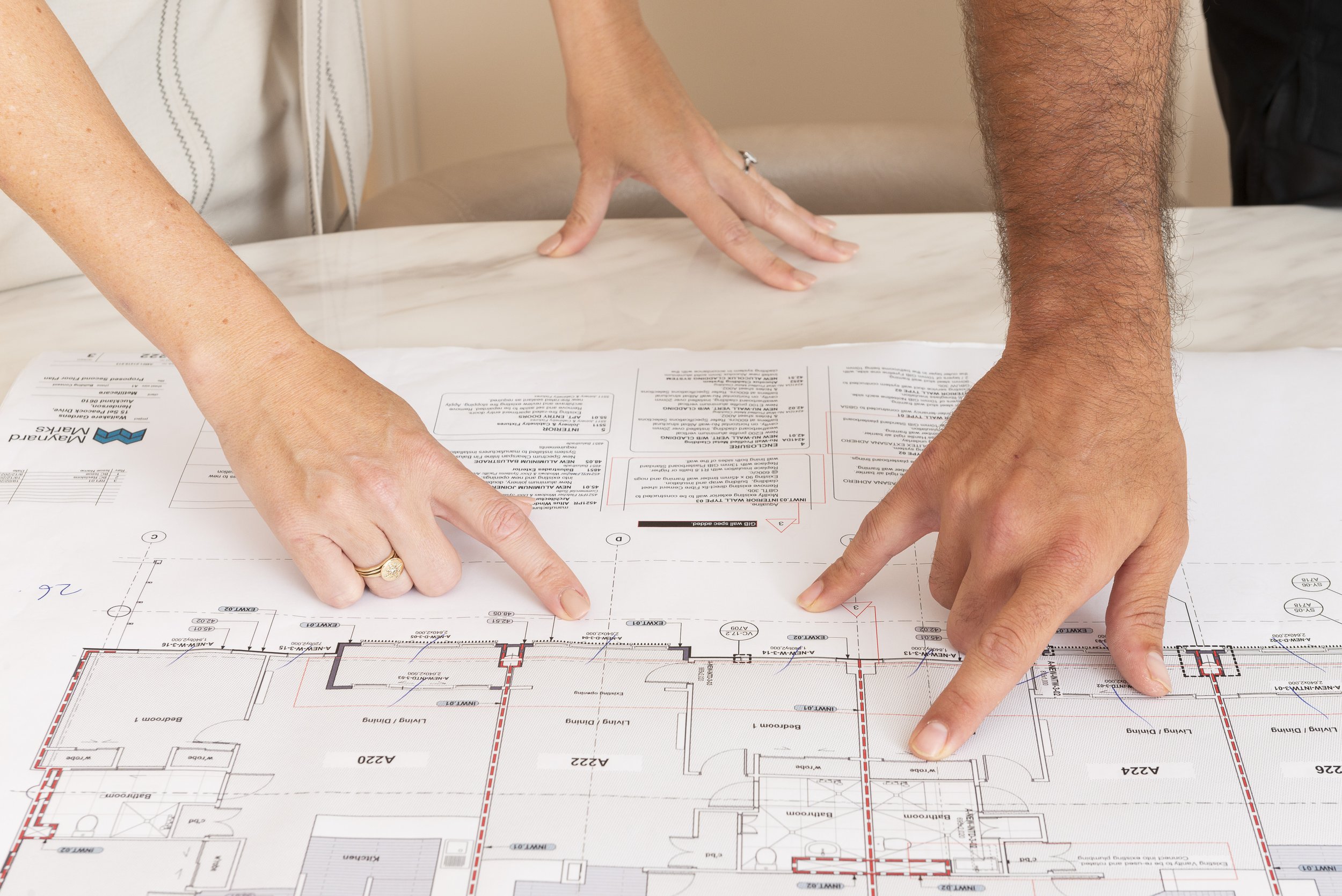How to budget with your builder
If there’s one area of a build that’s sure to give you a headache, it’s the budget. Here’s how to navigate your finances from the outset and ensure your project is as pain-free as possible.
Embarking on a construction project is exciting, but as with every life-altering endeavour, it’s sure to come with some challenges. One of the crucial aspects that can make or break the success of your build is effective budgeting. Collaborating with a Registered Master Builder not only ensures means the highest standards of craftsmanship but also facilitates a smoother budgeting process. Registered Master Builders understand the importance of open communication with their customers. Prior to breaking ground, or even signing the contract, it’s important to be on top of your budget, considerring potential budget challenges and establishing clear communication from the get go.
My biggest piece of wisdom when embarking on a build or renovation is to make sure you’re working with a builder you trust. Registered Master Builders are professionals who have met stringent criteria, including demonstrating a high level of skill, ethical financial governance, customer service and compliance with industry standards. By engaging a Registered Master Builder, you’ll gain access to a wealth of expertise, ensuring meaning your project is in capable hands. This choice not only guarantees sets you up for quality workmanship but also sets the foundation for a more transparent and efficient budgeting process.
Effective budgeting starts with meticulous planning. Collaborate closely with your builder during the initial stages to establish a comprehensive understanding of your project's scope, specifications, and requirements.
Steps to take during the planning phases
Define your objectives and scope: Clearly outline your goals for the project, including the size, layout, and features you envision. This helps your builder provide accurate estimates and avoids misunderstandings later in the process.
Develop a detailed project brief: Working closely with your builder, this document should encompass architectural plans, material specifications, and any specific requirements you have. A well-defined project brief serves as a roadmap for your builder and aids in accurate budgeting.
Consider contingencies: While developing your budget, it's crucial to include contingency funds for unforeseen circumstances. Delays, changes in material costs, or unexpected structural issues can arise, and having a financial buffer will help mitigate the impact on your budget.
Utilise your builder's expertise: Registered Master Builders bring a wealth of experience to the table. Leverage their knowledge during the planning stages to make informed decisions about materials, construction methods, and potential cost-saving measures without compromising quality. They can also advise on where your greatest risks are to help ensure you have enough contingency.
Consider a Master Build 10-Year Guarantee: To make sure your new build or renovation is protected long after the project is completed, talk to your builder about taking out a Master Build 10-Year Guarantee. This offers a decade of protection on the work, even if your builder goes out of business, and is considered the leading option of its type in the market, provided your build meets the necessary design requirements.
Do your due-diligence: Make sure you understand the deposit, and your payment schedule. A good rule of thumb for a deposit is around 10% - if your builder requires more than this, make sure you understand why and are comfortable with the risk. Your payment schedule should then cover work as it is completed. I recommend getting legal advice – from a someone who has experience with building projects. They can explain the contract to you and make sure your understand what is included and your rights and obligations.
Potential budgeting challenges
Despite careful planning, budget challenges can emerge at any point in the construction process. Being aware of potential issues allows you to proactively address them with your builder. Here are a few common challenges that may pop up during your build:
Scope changes: Modifications to the project scope, whether due to design alterations or additional features, can impact the budget. It's essential to communicate any changes promptly and work with your builder to assess the financial implications before proceeding.
Material cost fluctuations: Construction material prices can fluctuate due to market conditions. Stay informed about these fluctuations and collaborate with your builder to adjust the budget accordingly. A Registered Master Builder can provide insights into alternative materials that meet your specifications while staying within budget constraints.
Unforeseen site conditions: Unanticipated site challenges, such as poor soil quality or unexpected geological issues, can lead to additional costs. Regular site inspections and open communication with your builder help identify potential problems early, allowing for informed budget adjustments.
The key to successful budgeting is communication
Clear and open communication between the client and builder is paramount to ensuring a successful budgeting process. Establishing effective communication channels can help address issues promptly and foster a collaborative environment. Your builder likely has systems in place already to ensure open lines of communication and collaboration, these may include:
Regular progress meetings: Schedule check-ins with your builder to discuss the project's status, address any concerns, and review the budget. This ensures both parties are on the same page and allows for adjustments as needed.
Utilising digital platforms: Email, project management apps, and virtual meetings provide efficient ways to exchange information and updates, promoting transparency throughout the construction process, and mean you don’t always need to be on site to stay in the loop with the progress of your build.
Documenting changes in writing: Any modifications to the project, whether in design or scope, should be documented in writing. This helps prevent misunderstandings and provides a clear record of agreed-upon changes, aiding in accurate budget tracking.
A well-executed budget not only ensures financial stability, but also contributes to the overall success of the build, and your satisfaction with the project. Collaborating with a Registered Master Builder means you can focus on comprehensive planning, addressing potential budget challenges from the outset and prioritising open communication, which means you’re able to navigate the entire build with confidence.




